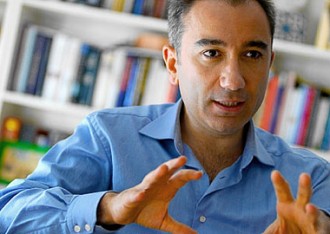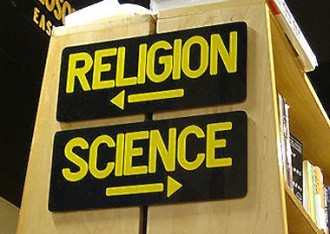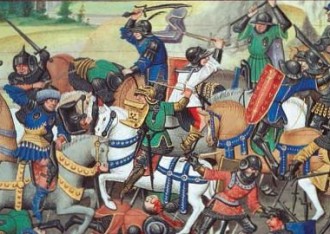New Report: Muslim Terrorism a ‘Minuscule Threat’
Time to get a grip.
Read MoreTime to get a grip.
Read More
“This book is mainly about the problem of freedom in Islam. I argue that Islam, as its very core, is a religion that liberated the individual from the bond of the tribe and similar collective bodies. But I also show how the initial impetus of the faith was partly overshadowed as a result of some early theological controversies, and, moreover, political decisions. This also means that some of those early debates can be reopened, and coercive elements in Islamic law and culture can be reformed. And I am saying all these within a particularly Turkish outlook, as I explain the little known history of ‘Muslim liberalism’ that emerged in the late Ottoman Empire and modern-day Turkey.”
Read More
Time magazine’s religion top ten list had Mormonism in the spotlight. The Religion Newswriters Association voted Osama bin Laden’s death (and the faith response to it) their number one story in a list that included Harold Camping, Rob Bell, and Mississippi’s Personhood initiative. Oh, and the top religion author of 2011? Tim Tebow, whose life story is a runaway bestseller for our friends at HarperOne.
But what about the stories that shoulda been, but weren’t? We’re thinking this list, drawn up Peter Laarman, might provide a template for 2012 coverage. —The Eds.
Read More
After Lowe’s bowed to pressure from a regional conservative Christian group and pulled its advertising from TLC’s All American Muslim, a satirical video began to circulate. RD interviews the masterminds behind it all.

Despite a media blackout on the killing of Shaykh Emad, who refused to see the protests as illegitimate rebellion, Twitter and Facebook were on fire with expressions of sadness and outrage.
Read More
This year has marked, I believe, the beginning of the end of the war between science and religion. Creationism cannot last. The New Atheists are now old (or departed). And between these camps the middle ground continues to expand. Indeed, many folks have been hard at it, doing a new kind of peace work. Some have done it intentionally, some have not. Outliers, both atheist and religious hardliners, continue to wage battle but they look increasingly irrelevant.
Read MoreCan a single reality TV show represent all Muslims? Should it?
Read More
The biggest misconception about the crusades is the belief that everyone understood them as religious wars between Christianity and Islam. Latin Christians understood it in that fashion, but for Greek Christians, the crusaders were essentially mercenaries employed against a rival empire. Both the Sunni Turks and the Shi‘i Egyptians probably understood the crusades in similar terms. It would take the Muslims several decades to learn to think of the battles against the Franks as religious wars rather than as conflicts over the control of frontier settlements.
Read More
Even with all its imperfections “All-American Muslim” will open a conversation. The question is: what kind of conversation and where will it take us?
Read More
This summer, the world’s largest clock began to tick in Mecca—Islam’s holiest city—marking the beginning of Ramadan, the month of fasting for Muslims. After the inauguration of the clock, there were calls from many Muslims to replace Greenwich Mean Time (GMT)—the world standard for 125 years—with Mecca Time.
Read More